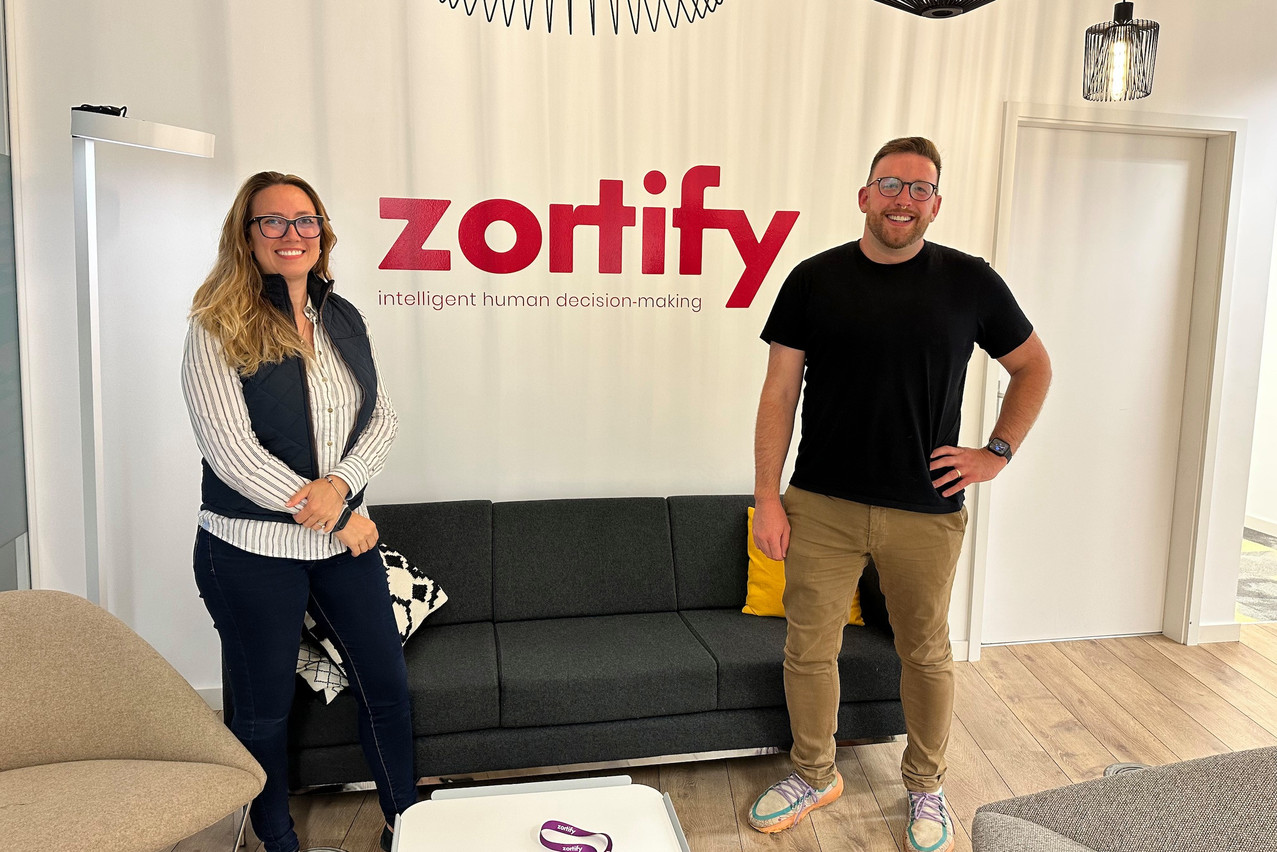What does it mean for a tech startup to run a “summer school” and for the bulk of its applicants--so far, anyway--to be from the world of academia and not industry?
At the very least, it suggests that the line between university research wing and company R&D department is blurring. Zortify is the tech startup in question, a Luxembourg firm specialising in artificial intelligence and “human experience,” and nearly half of whose 32 employees have PhDs.
“A lot of us are academics, but we’re working in an industry context,” says Christopher Morse, director of Zortify Labs, the firm’s research group. “We’re trying to bridge this [gap] all the time.”
For Morse, Luxembourg is an ideal (if unique) place for such a bridge. Having studied previously in his native USA, he came here in 2017 to do a PhD at the University of Luxembourg. Back home, he says, “I’d always felt like I was a number… like my studies were very theoretical, where they would not reach industry in any meaningful way.” Studying in Luxembourg, however--at a publicly funded university in a small country, he points out--was “the exact opposite experience.”
“It was culture shock, because [I thought]: wow, people actually read what we’re doing and care about it.”
Morse made the switch from academia to industry in 2021 when he finished his PhD and started working for Zortify. From his new vantage point, however, the worlds still overlapped. The startup publishes whitepapers and takes on PhD students, while a portion of its research is shared openly because it’s funded, in part, by public sources.
Read also
“It’s part of our blood and DNA,” says Patricia Souza, senior human experience manager at Zortify, talking about the mix of academia and industry within the startup. For her part, Souza has observed a wider shift in the relationship between public and private research bodies: “When I started working, many years ago, there was always a bias for me when I would think about academia.” As she puts it, back then she thought: “Those are people who stay at university, in the theory world. They don’t know what’s happening in the markets.”
Nowadays, however, it’s different. “What I’ve seen in the past years,” she says, “especially with AI and technologies, is that [the worlds of industry and academia] are coming closer, and it’s becoming very symbiotic.”
Getting the whole ecosystem under one roof
For Zortify, a symbol of that symbiosis is their summer school, a five-day programme kicking off on 28 August with the theme “the future of work” and featuring modules on user experience design; data privacy and ethics; the intersection of computer science, design and psychology; how to explain artificial intelligence; natural language processing; and more.
The subjects are diverse enough that no applicant is expected to have a background in all of them. Rather, the point is more to build bridges and exhibit intellectual curiosity.
“Essentially, we’re trying to emulate how we create products,” says Morse, talking about the curriculum. “We have this process and it’s very interdisciplinary all the way through. We’re trying to show that in each module, and then give people some theoretical access and then also a practical [perspective].”
Applications close on 28 July at midnight. “We would be very interested into getting [more] applicants from industry,” adds Souza.
Thirty-six spots are available for the programme, though on one day--Thursday 31 August--extra participants will be accommodated, as it will be a special day focused on industry.
So what is the future of work?
Zortify have selected “the future of work” as the summer school theme, ostensibly because this is the slice of the future they’re focused on. More precisely, they want to change the nature of HR: Morse explains that Zortify’s products concern the whole employee lifecycle, from recruitment and professional development to leadership analysis and company culture assessment.
What, then, does the future of work look like?
Souza answers the question--speaking personally--by talking about the increased usage of artificial intelligence tools (as assistants rather than replacements). Her examples include having ChatGPT create the first draft of a long email or--more a general usage than a workplace one--suggesting the outline of a holiday.
She stresses that the email and the itinerary need, of course, to be checked and tweaked. ChatGPT saves her a lot of time, she says, but that’s all: “the wrong usage is thinking that it’s a research tool.”
On a Zortify level, the answer follows a similar pattern, only the assistance is meant for company decision-makers and the data generated pertains to their employees. To that end, the startup’s AI tools provide analyses of who people are and how they work.
This analysis comprises three parts: “entrepreneurial capital,” “psychological capital” and “counterproductive behavioural tendencies.” Having insights on these categories person-by-person will, according to the Zortify website, enable companies to “reinvent the employee experience” and “create the type of engagement that can generate the best results.”
“We always say: ‘HR is dead, welcome to human experience management,’” says Morse, adding that this change amounts, in a sense, to the decentralisation of HR activities.
Find out more about Zortify’s summer school on .
